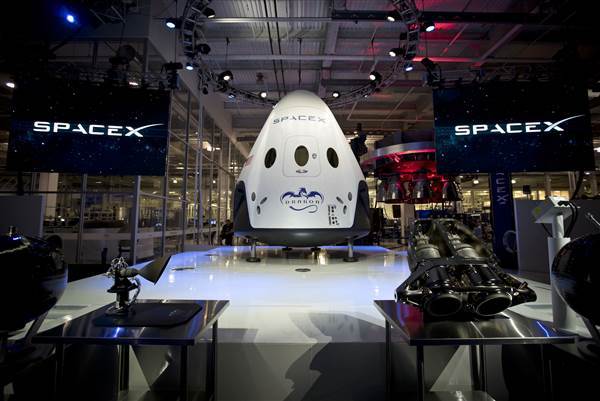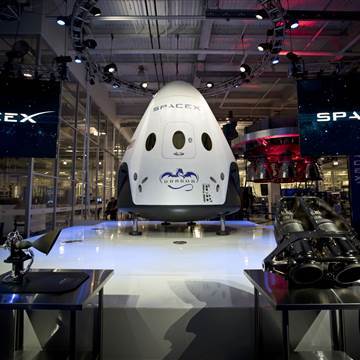Sure, the first private citizens to orbit the moon next year on board the SpaceX Dragon will be trained astronauts by then, but for the “astronomical” price they’re paying, you could also call them cash-tronauts.
According to CEO Elon Musk, the two mystery ticket holders have already paid a significant deposit for their trip, which should last about a week and log as much as 400,000 miles aboard the automated spacecraft.


Musk did not comment on the ticket price, but said it was comparable to a crewed mission to the International Space Station. NASA currently pays sound $80 million for one seat on board a Russian Soyuz rocket.
Related: SpaceX Plans to Launch First Mission With Private Crew to the Moon
So who might have enough zeroes in their bank account plus the daredevil gene to go on a trip like this? SpaceX isn’t releasing the identities of the travelers until they complete necessary health and fitness tests. However, it hasn’t kept people from guessing.
“My guess is it is someone who has gone through this before [as a space tourist] and now wants to go up and go around the moon,” Jim Cantrell, CEO at Vector, a private space company, and a founding member of SpaceX, told NBC News.
While it could be two rich friends looking to go on the trip of a lifetime, Cantrell said the more likely scenario may be one rich, adventurous space tourist who is also paying for someone with space expertise, perhaps a former astronaut, to join him or her on the trip.
During a teleconference on Monday, Musk said the space tourists “are entering this with their eyes open, knowing there is some risk.”
Aside from the health and fitness tests, the private passengers will also undergo training later this year for their journey.
In order to travel to the moon, Cantrell said the people on board will have to be fit enough to withstand the forces from launch and the high G-forces pushing down on their bodies as they re-enter Earth at a speed that he estimated could be close to 34,000 miles per hour.
Dragon will be automated, so the passengers should be in for a smooth ride. But Cantrell said he also expects they’ll get some contingency training on what to do, should something go wrong.
“It’s a first for navigation,” he said. “Dragon, as of today, has never gone past low Earth orbit. How do you know where you’re going and how to fire your thrusters?”
Before the pair — whoever they are — take off next year, SpaceX will launch its Dragon crew vessel on an unmanned maiden voyage at the end of this year. Six months later, the crew voyage will take place to the International Space Station.
By the end of 2018, the daredevil duo will be set to launch from the same pad used for the Apollo missions on their once-in-a-lifetime trip.
“You can hardly do anything as thrilling as this,” Cantrell said.





